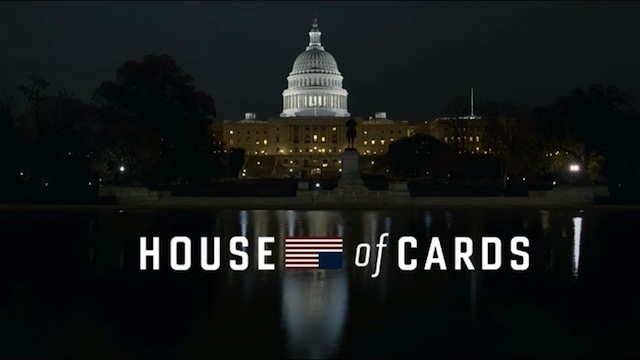You’ll probably be disappointed, too. Part of Season 1’s charm was its unchecked ambition, with schemes a little too intricate and subplots too eager for their own good. Frank’s path to the vice presidency might have been as convoluted as a Rube Goldberg machine, but when the impossible contraption actually worked, we excused logic as we basked in Frank Underwood’s brilliance. Meanwhile, we fell for Zoe Barns (the young reporter) and Peter Russo (the alcoholic congressman) even as their subplots took turns upstaging Frank himself. We didn’t mind the show’s sloppiness, because with each mistake, it became all the more mesmerizing.
Jump ahead to Season 2: now the Vice President, Francis “Frank" Underwood (Kevin Spacey) faces a new batch of challenges: suspicion from Zoe’s cadre of nosy reporters, disagreements with China, odd behavior from right-hand-man Doug Stamper (Michael Kelly), but mostly, competition from Raymond Tusk (Gerald McRaney) to be the President’s most trusted #2. The tiff with Tusk offers a bit of testosterone-fueled fun early on, but the conflict grows stale after three or four episodes, with the same paint-by-the-political-numbers plot. Example: 1) The President, Tusk, and Frank meet. 2) Tusk and Frank disagree. 3) Frank uses a familiar rhetorical technique (usually, reverse psychology) to see that things go his way. 4) Things go his way. If you think I’m exaggerating, take a look at these excerpts from six of the official episode teaser descriptions (out of 13 total):
Episode 3: Tension rises between Francis and Raymond Tusk.
Episode 6: Francis and Tusk end their shaky alliance.
Episode 7: It’s all-out war between Francis and Tusk.
Episode 8: The war with Tusk intensifies.
Episode 9: Things get personal when Tusk blindsides the Underwoods.
Episode 10: Francis wants to finish off Tusk for good.
Meanwhile, the subplots make valiant efforts to break up the Tusk tedium, but none succeed as thoroughly as Peter Russo from Season 1. Doug Stamper’s growing obsession with reformed call girl Rachel (Rachel Brosnahan) hits some satisfying emotional notes, but fails to influence the primary plot, more a somber sideshow than a serious storyline. Zoe’s boyfriend Lucas (Sebastian Arcelus) grabs early screen time investigating Frank’s crimes, but the data-hacking, big brother-watching plot quickly becomes absurd, then irrelevant, then nonexistent—well before the Frank-Tusk vendetta nears its conclusion. If there’s one subplot to praise, it's Freddy’s (Reg E. Cathy), whose popular BBQ joint features prominently in the season’s 9th episode. Like Frank’s Season 1 trip to his alma mater, Freddy’s episode in Season 2 is the most touching, nuanced, and quietly arresting installment of the season—an episode that will linger even as you gulp down five or six entries at a time.
But perhaps the biggest problem with House of Cards Season 2 is the growing sense of inevitability—that Frank will (inevitably) get his way; that his colleagues will (inevitably) be tricked, convinced, or cajoled; that Claire (Robin Wright) will (inevitably) support, accept, and encourage him. Yes, there’s something darkly pleasing about watching Frank’s political initiatives succeed (compared to the real-world gridlock in Washington today), but it’s also sad, sterile, and empty. House of Cards doesn’t expose an ugly truth (Frank’s schemes are too fanciful and too successful for real life), nor does it comment seriously on some great failing of humanity or the pitfalls of unchecked ambition. Instead, House of Cards starts and stops at entertainment—a show designed to propel you through its 13 episodes at light speed, then prod you along to the next series in the queue.
Maybe I'm being too critical. Spacey’s smooth-as-mollasses performance will hypnotize you as he chews nastily over every line. The series' cold opening scenes will gives you chills, the dialogue placed with a surgeon’s clinical efficiency, the cuts focused and exacting. Robin Wright’s Claire will earn your admiration (and underscore her Emmy) as she smiles, schemes, and sobs through some of the series’ most crafty scenes and cutthroat exchanges. You will savor House of Cards Season 2—in all its silky, sinister glory—for the full 649-minute runtime. The trouble is, you won’t give the show another thought after minute 650.


 RSS Feed
RSS Feed
